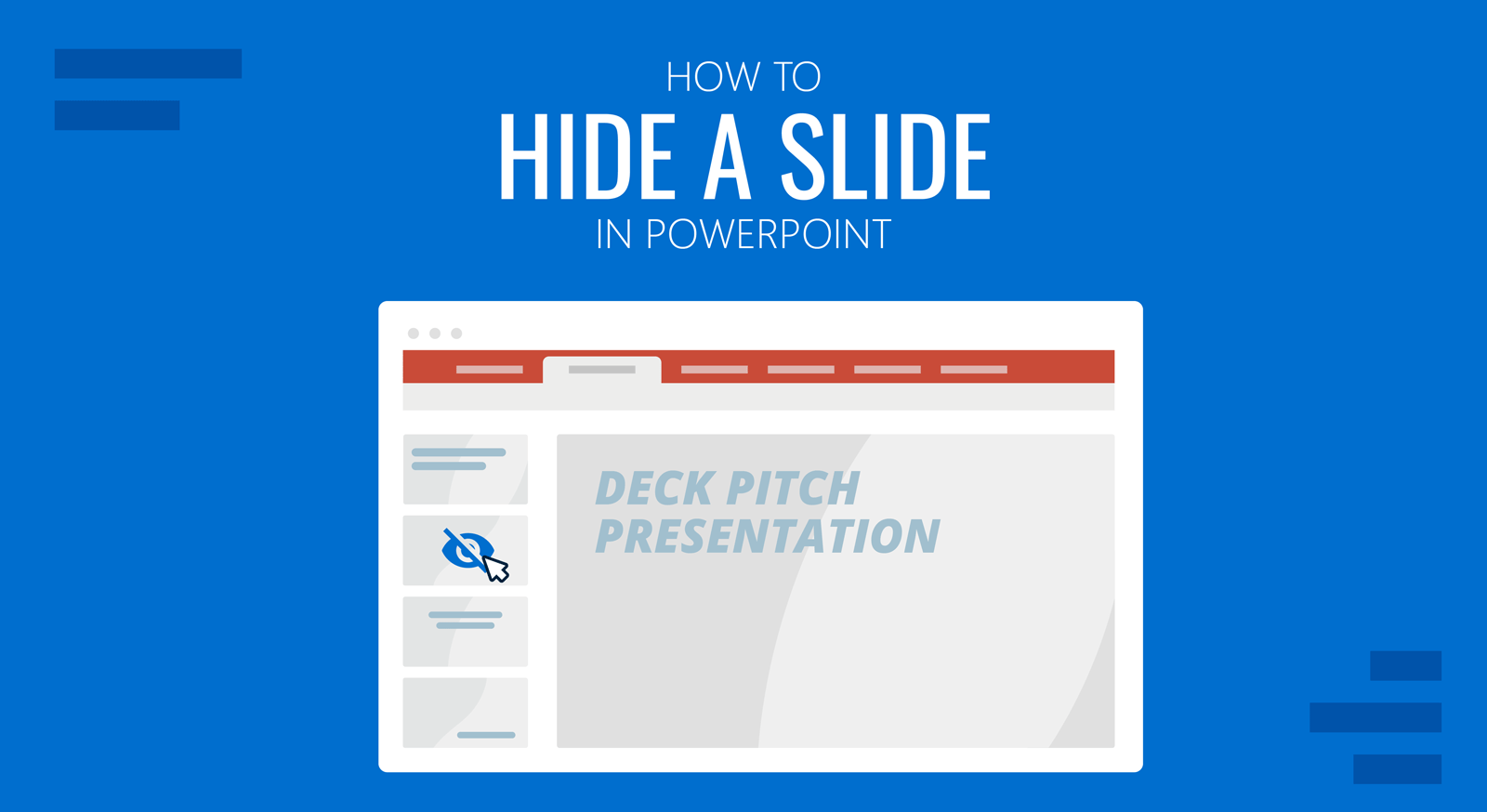
One of users’ most commonly asked questions is how to hide a slide in PowerPoint since users tend to try and test different approaches for the final presentation. Instead of making multiple versions of the same presentation, we will follow a procedure similar to our article on how to hide a slide in Google Slides.
For this tutorial’s purpose, we’ll use the Business Case Study PowerPoint Template, but you can work these same steps with any other presentation you create.
Method #1: Hide a slide in PowerPoint via right-click
The first method to hide a PowerPoint slide is very intuitive. Say we want to hide the third slide of this presentation.
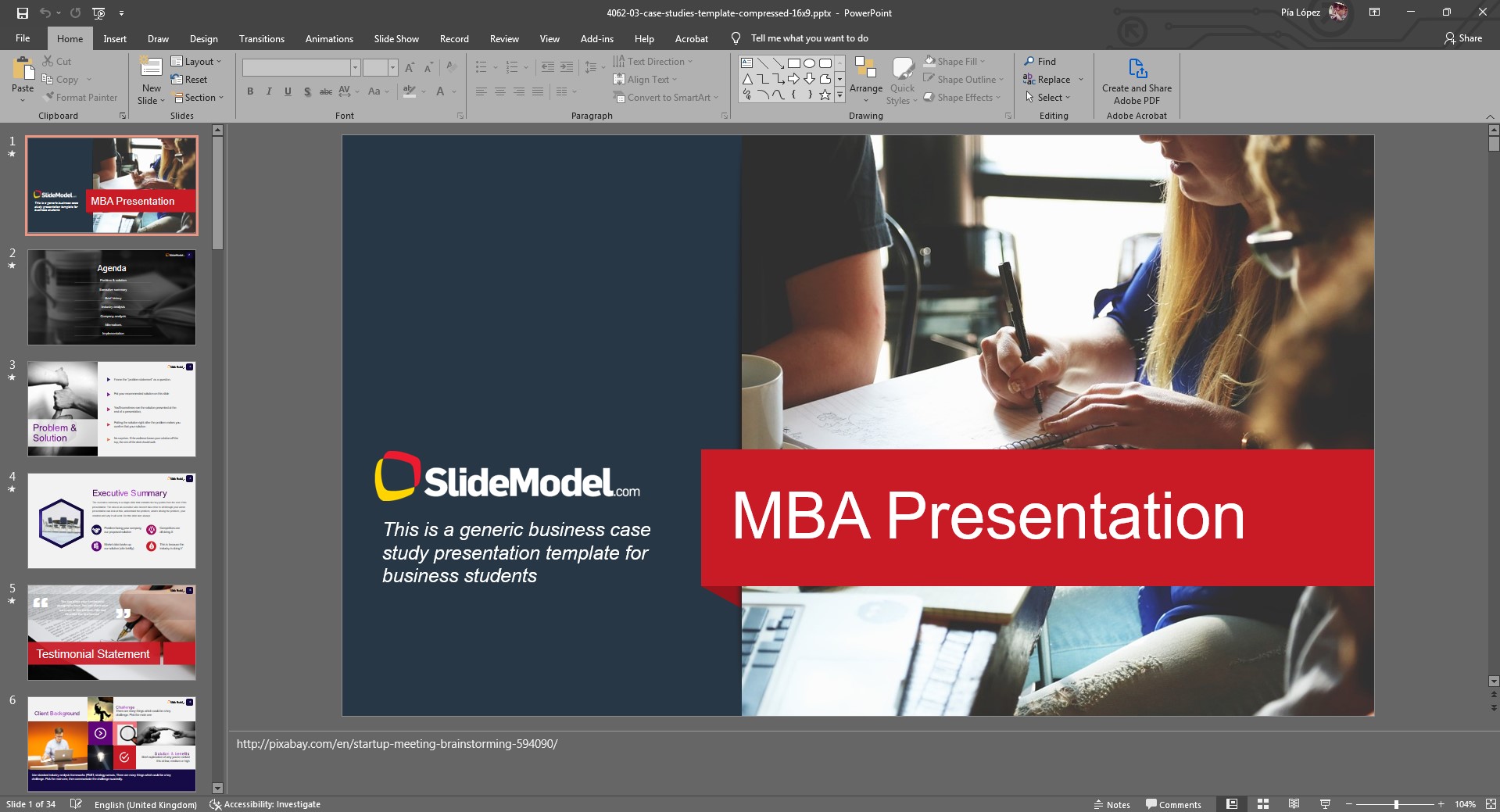
We right-click over the slide in question at the navigation bar and click on the option Hide Slide.
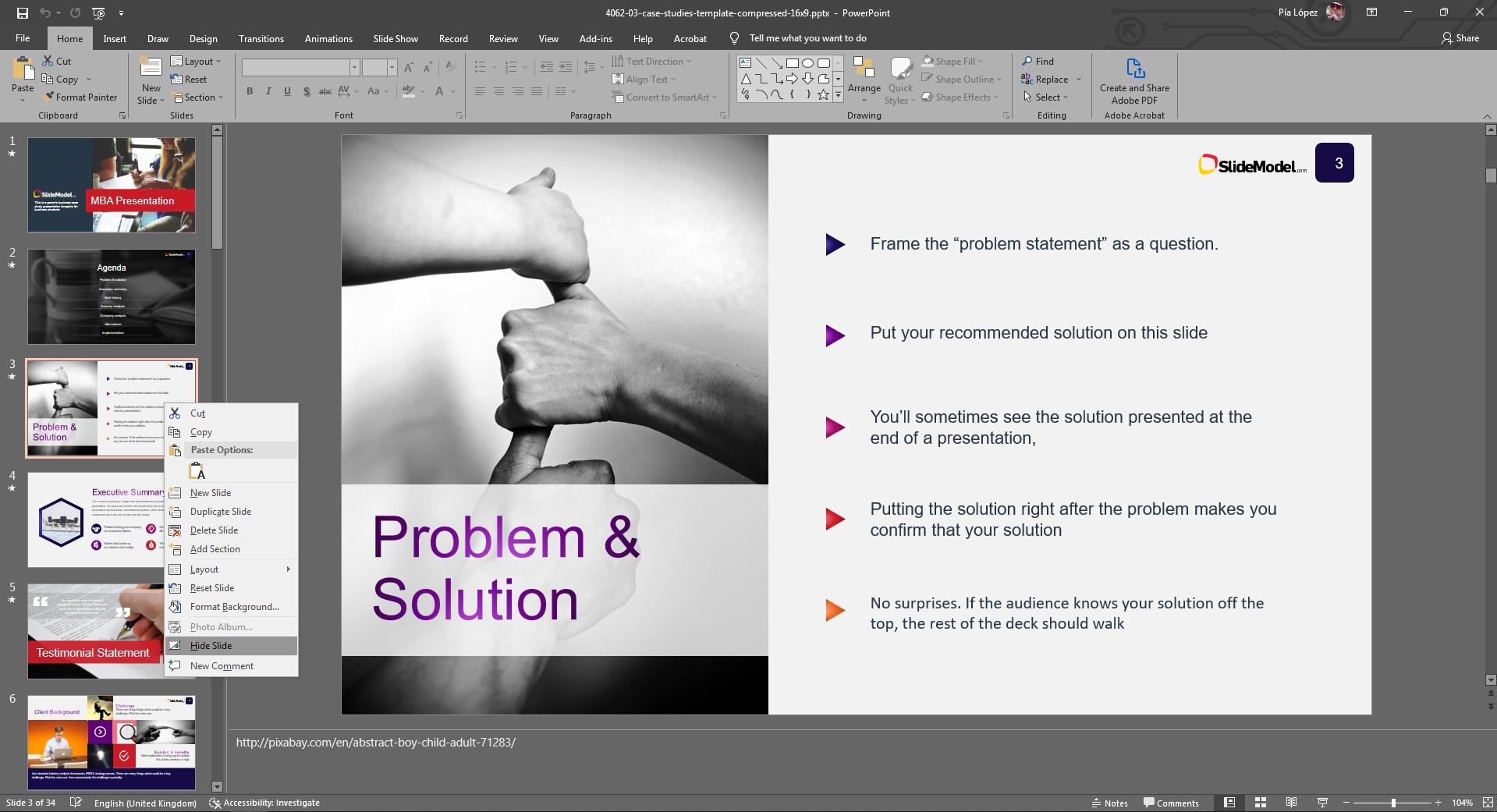
The hidden slide will remain hidden for slideshow presentations. You can tell the slide is hidden because it looks grayed out, and the number for the slide is crossed by a bar.
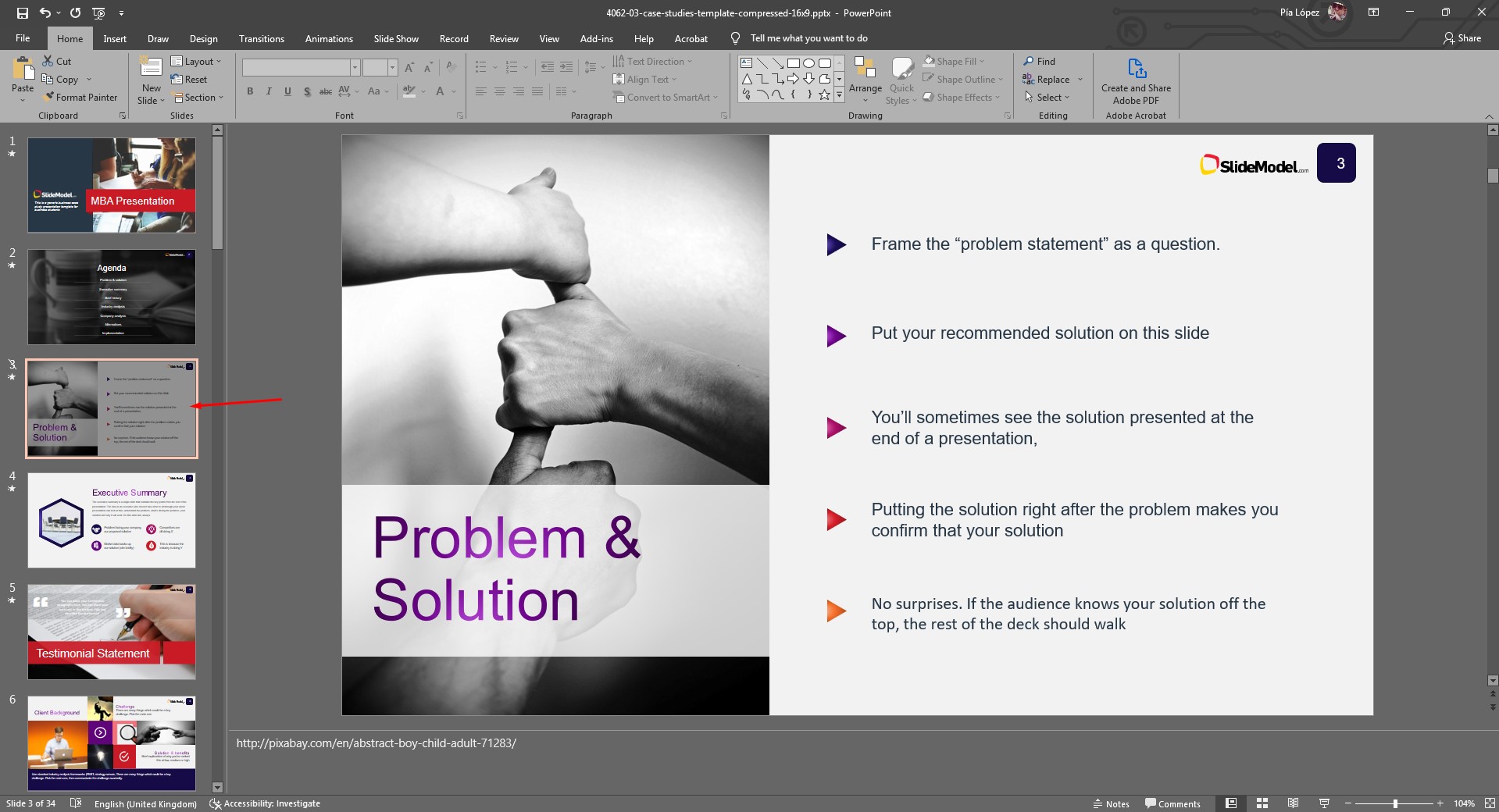
To unhide the slide, you have to right-click over it again and unselect the Hide Slide option.
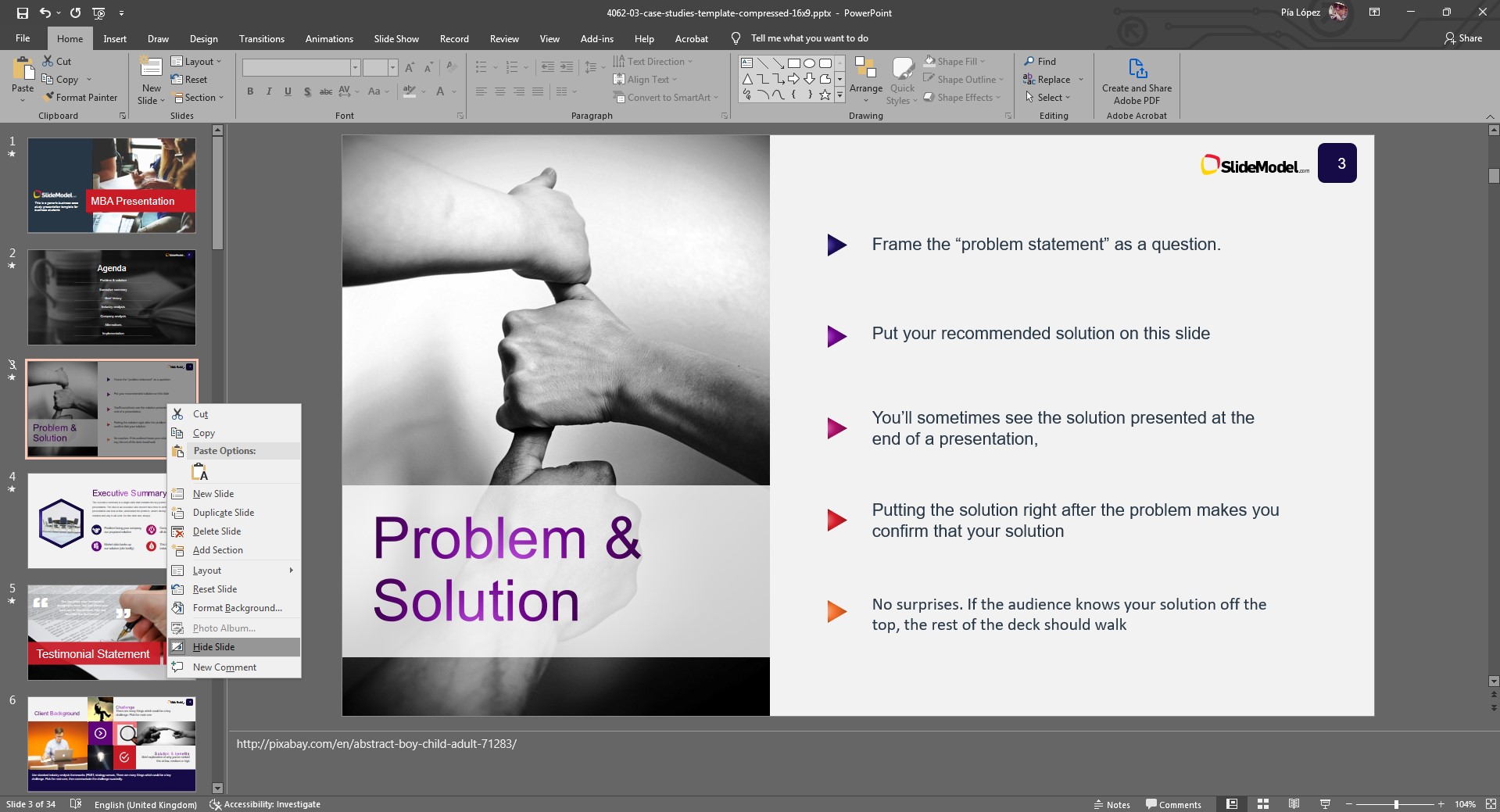
And the slide will be visible again, as shown below.
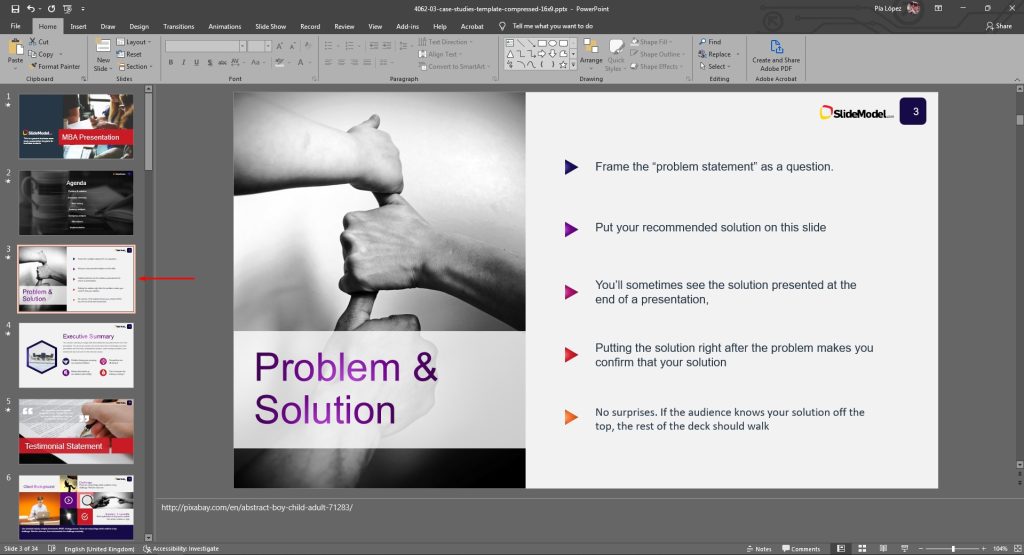
Method #2: Hide a slide in PowerPoint via the Slide Show tab
The second option to hide a PowerPoint slide is viable when you are recording or rehearsing your presentation via the Slide Show tab, as it’s one of the available options in this Ribbon’s menu.
Start by selecting the slide you desire to hide. Switch to the Slide Show tab. In there, click on Hide Slide.
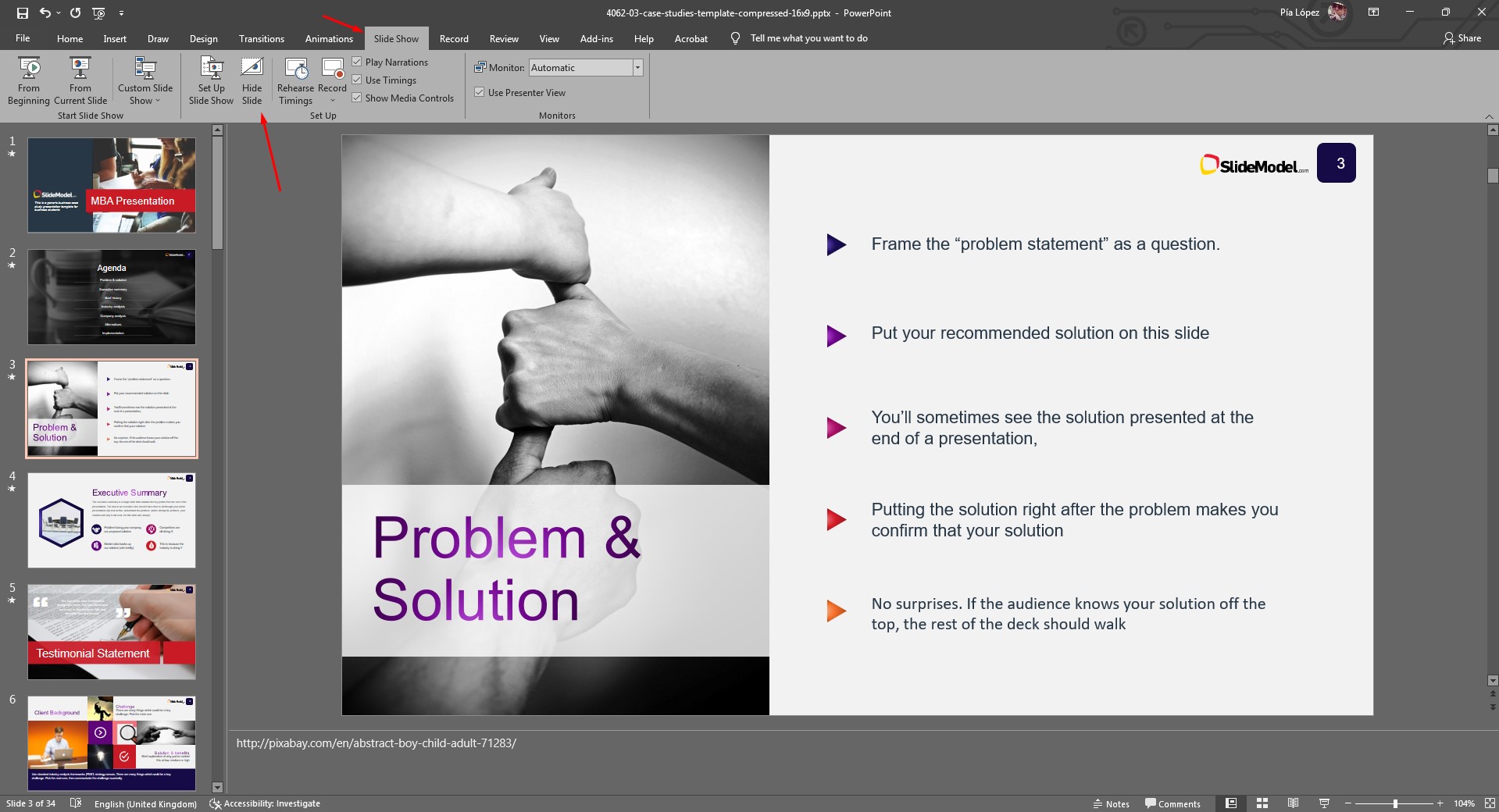
The slide is hidden after that step. To unhide the slide, click again on Hide Slide, and it will make the slide available for slideshow mode.
How to print a presentation in PowerPoint with hidden slides
Finally, it’s important to mention that you need to tweak some settings before printing your presentations in PowerPoint; otherwise, the hidden slides will get printed.
To quickly fix this issue, go to File and then select Print. The printing options for PowerPoint will be displayed. The first section below Settings says “Print All Slides”. That’s where you need to click and look all the way down at that contextual menu to locate Print Hidden Slides. Uncheck that option.
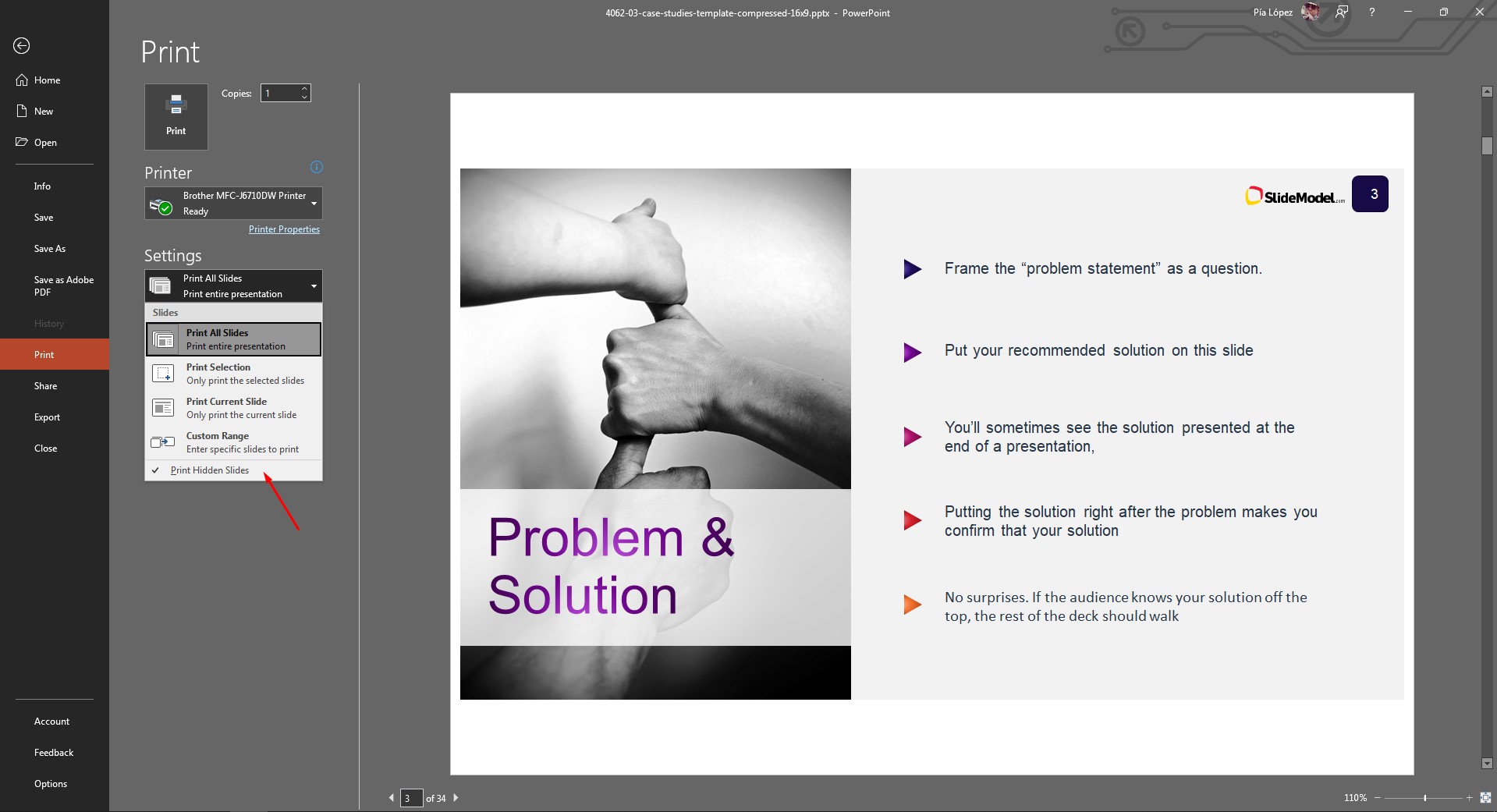
And that’s how easily you can hide a slide in PowerPoint.
FAQ’s
How do I hide a slide in PowerPoint using the right-click method?
To hide a slide, use the right-click method:
– Navigate to the slide you want to hide.
– Right-click on the slide thumbnail in the navigation pane.
– Select Hide Slide from the context menu. The slide will appear grayed out with a line through the slide number.
How do I unhide a slide in PowerPoint?
To unhide a slide:
– Right-click on the hidden slide thumbnail (it will be grayed out and have a line through the slide number).
– Select Hide Slide again to uncheck the option. The slide will return to normal visibility.
Can I hide a slide while in Slide Show mode?
Yes, you can hide a slide while in Slide Show mode:
– Select the slide you want to hide.
– Go to the Slide Show tab in the Ribbon.
– Click Hide Slide. The slide will be hidden during the slideshow.
How can I tell if a slide is hidden in PowerPoint?
A hidden slide will appear grayed out in the slide navigation pane, and a diagonal line will cross through the slide number.
What is the benefit of hiding a slide instead of deleting it?
Hiding a slide allows you to keep the content for potential use without displaying it during the presentation. This can be useful for rehearsing different versions or having backup information that you may or may not want to present.
How do I print a PowerPoint presentation without hidden slides?
To print a PowerPoint presentation without hidden slides:
– Go to File > Print.
– In the Settings section, click on Print All Slides.
– Scroll down and uncheck Print Hidden Slides to exclude them from the printout.
Can hidden slides be included in printed handouts?
Yes, hidden slides can be included in printed handouts by default unless you uncheck the Print Hidden Slides option in the print settings.
Is there a keyboard shortcut to hide a slide in PowerPoint?
There is no direct keyboard shortcut to hide a slide, but you can quickly access the hide option using the right-click menu or the Slide Show tab in the Ribbon.
Can I hide multiple slides at once in PowerPoint?
Yes, you can hide multiple slides at once:
– Hold down the CTRL key and select the slides you want to hide.
– Right-click on one of the selected slides and choose Hide Slide. All selected slides will be hidden.
How do I ensure hidden slides are not displayed during a presentation?
Once you hide a slide, it will not be displayed during the presentation unless you manually navigate to it. Ensure you are familiar with your slide sequence to avoid accidental navigation.


